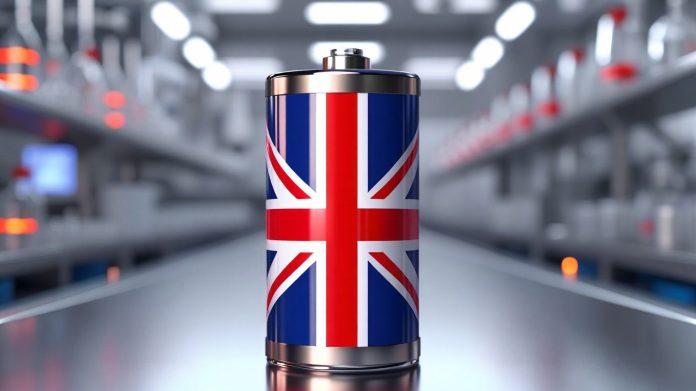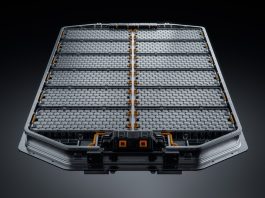The UK battery sector is set to gain a significant boost as Agratas, the Tata Group’s global battery company, has entered a multi-year partnership with the Faraday Institution.
This collaboration aims to address the growing demand for skilled professionals in the battery development field by fostering talent through cutting-edge research and development initiatives.
Professor Martin Freer, CEO of the Faraday Institution, explained: “The next generation of battery technologies will be developed by the next generation of battery researchers.
“This partnership’s commitment to talent development comes at a key time for the UK battery sector as we look to build on the nation’s distinct advantage in battery R&D as it competes in the global race to attract investment in battery manufacturing and innovation.”
A new chapter in talent development
As part of this groundbreaking agreement, Agratas has funded a pilot programme for three PhD studentships.
These doctoral researchers will contribute to ongoing Faraday Institution projects, gaining hands-on experience in critical areas of battery technology.
This initiative aligns with the shared goal of both organisations to accelerate advancements in the UK battery sector while ensuring a steady pipeline of highly trained talent.
“The demand for skilled professionals to achieve a fully electric future has never been more urgent,” a joint statement from the two organisations emphasised.
This partnership combines Agratas’ industrial vision with the Faraday Institution’s track record of cultivating world-class talent.
Equipping researchers for the future
Since its establishment, the Faraday Institution has led a specialised PhD training programme that prepares researchers for impactful careers in academia, industry, and policymaking.
Graduates from the programme are equipped with deep technical expertise, interdisciplinary knowledge, and transferable skills, making them highly sought after in the fast-evolving battery sector.
Agratas’ sponsorship of three PhD studentships is part of a broader cohort of 16 researchers who joined the Faraday Institution’s PhD Enrichment Scheme in October 2024.
These studentships, spanning four years, will include industrial internships with Agratas, bridging the gap between academic research and practical application.
Dr Valentina Gentili, Vice President of Global Research and Development, Cell Technology at Agratas, added: “Agratas’s purpose is to pioneer power for future generations by fostering talent and driving innovation in next-generation battery technologies.
“We are so excited to be part of the vibrant UK ecosystem, collaborating with our partners, the Faraday Institution, and world-leading academics to shape a sustainable electric future for the UK.”
Spotlight on pioneering battery research
The funded researchers are already making strides in transformative battery technologies:
- Becky Larner (University of Oxford) is advancing manufacturing processes as part of the Nextrode project.
- Chris Smith (University of Cambridge) is investigating battery degradation alongside world-renowned scientists.
- Tihana Štefanić (University of Oxford) is contributing to the Multi-scale Modelling project, exploring battery design at multiple levels.

Commenting on the opportunity, Becky Larner said: “I obtained an MSci in Chemistry from Cambridge University, where I researched sodium-ion batteries with the Grey group.
“Now, I am a first-year DPhil student researching electrodes for sustainable lithium-ion batteries at the University of Oxford, where I am supervised by Professor Patrick Grant. I was attracted to this project because I find energy storage technology really interesting and want to help make it more sustainable.”
Chris Smith added: “I am currently a PhD researcher at the University of Cambridge, having previously graduated with a BEng in Materials Science and Engineering from the University of Sheffield and an MSc from Imperial. Prior to starting my PhD, I worked as a Materials Research Engineer in developing polymeric materials for flexible screens and electronics.
“This gave me practical experience with the challenges related to industry research and developing the back-end application. However, this did not satisfy my aspiration to positively contribute to the environment and the transition toward a more sustainable future.
“Battery research ties together my fascination with fundamental materials chemistry whilst aligning with my environmental consciousness. Being co-supervised by Clare Grey and Michael de Volder is truly brilliant. They are both at the top of their field and I cannot wait to produce meaningful research with them.
“I am delighted to be collaborating with Agratas as this facilitates academia and industry working together and striving for a better future while simultaneously giving my research real-world impact.”
This partnership underscores the growing importance of collaboration between industry and academia in positioning the UK as a global leader in battery innovation.
By nurturing the next generation of experts, Agratas and the Faraday Institution are ensuring the UK battery sector is well-equipped for the challenges of an electrified future.









